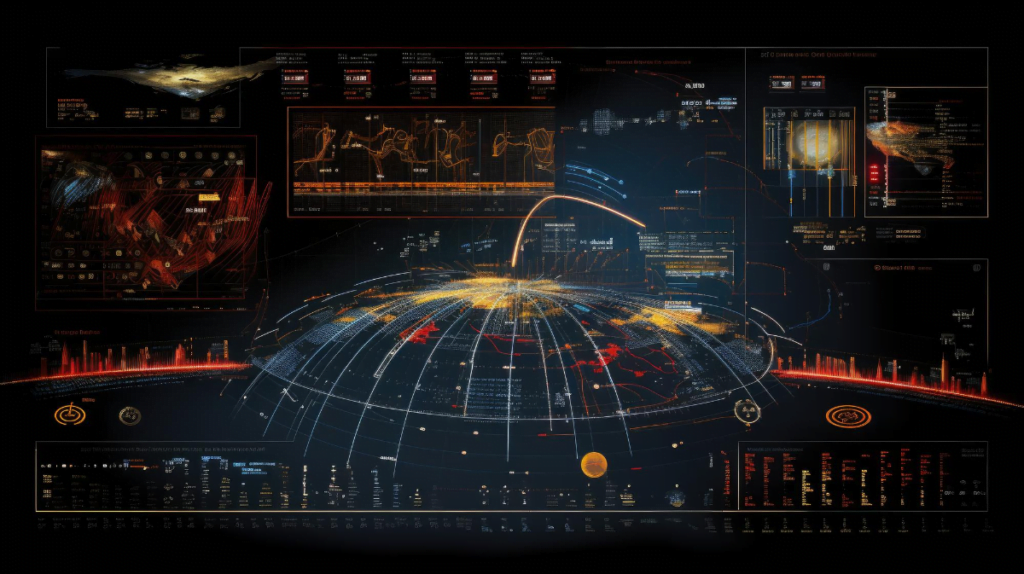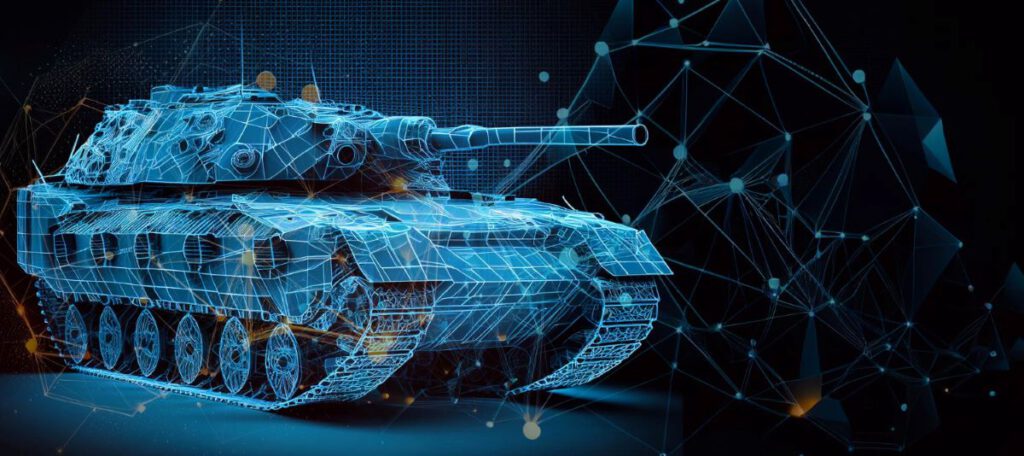Artificial Intelligence (AI) has permeated various sectors of human life, including healthcare, finance, transportation, and more. One of the domains where AI’s impact is increasingly felt is in the military and defense sector. AI warfare refers to the integration of AI technologies into military strategies, operations, and equipment. This article explores the various facets of AI warfare, including its applications, ethical considerations, challenges, and future prospects.
Applications of AI in Warfare
Tactical Decision Making
AI algorithms can analyze vast amounts of data in real time, assisting military commanders in making informed and timely decisions. This includes predicting enemy movements, optimizing resource allocation, and enhancing situational awareness. By processing complex battlefield data, AI can provide insights into potential strategies, allowing for more adaptive and responsive tactics. This not only improves the efficiency of military operations but also minimizes risks to human lives.
Autonomous Weapons Systems
AI-powered drones, robotic tanks, and other autonomous weapons can operate without human intervention, executing predefined tasks with precision. These systems can be used for surveillance, reconnaissance, and targeted strikes. The development of autonomous weapons has revolutionized warfare by enabling more accurate and consistent execution of tasks. However, it also raises concerns about the potential loss of human control and judgment in critical situations.

Cyber Warfare
AI plays a vital role in both offensive and defensive cyber warfare. It can be used to detect vulnerabilities, launch cyber attacks, and defend against potential threats. AI-driven algorithms can analyze network behavior, identify anomalies, and respond to cyber threats in real time. This enhances the ability of military forces to protect sensitive information and maintain the integrity of their cyber infrastructure.
Logistics and Supply Chain Management
AI can optimize logistics, ensuring that troops are supplied with necessary resources efficiently. This includes route planning, inventory management, and predictive maintenance. By leveraging AI, military forces can reduce waste, improve resource allocation, and ensure that equipment and supplies reach the right place at the right time. This logistical efficiency is crucial for the success of military missions.
Ethical Considerations
AI warfare raises significant ethical concerns, particularly regarding accountability, transparency, and human control. The deployment of autonomous weapons systems can lead to unintended casualties if not properly controlled. The lack of human intervention in decision-making processes may also lead to legal and moral dilemmas. The challenge lies in developing frameworks that ensure responsible use of AI in warfare, balancing technological advancements with ethical principles.

Challenges and Limitations
Reliability and Security
Ensuring the reliability and security of AI systems in warfare is paramount. Vulnerabilities in these systems can be exploited, leading to catastrophic failures. The complexity of AI algorithms requires rigorous testing and validation to ensure that they perform as intended under various conditions.
Interoperability
Integrating AI with existing military infrastructure requires seamless interoperability, which can be complex and costly. The diverse range of technologies and platforms used in military operations necessitates careful planning and coordination to ensure that AI systems can function effectively within the existing framework.
Human-Machine Collaboration
Striking the right balance between human control and machine autonomy is a significant challenge. Too much reliance on AI may diminish human judgment, while too little may underutilize the technology’s potential. Developing systems that enhance human decision-making without replacing it is a critical aspect of AI warfare.

Future Prospects
The future of AI warfare is likely to see continued growth and sophistication. Research and development in areas such as swarm intelligence, human-machine teaming, and adaptive learning will shape the next generation of military technologies. However, international regulations and agreements may be necessary to ensure responsible development and deployment. Collaborative efforts among nations, researchers, and policymakers will be essential to navigate the complex landscape of AI warfare, ensuring that technological advancements serve the greater good without compromising ethical standards.
Conclusion
AI warfare represents a significant shift in the way military operations are conducted. While offering numerous advantages in terms of efficiency, precision, and adaptability, it also presents challenges and ethical considerations that must be carefully addressed. The integration of AI into warfare is not merely a technological advancement but a complex interplay of strategy, ethics, law, and human judgment. As nations continue to explore and invest in AI warfare, a thoughtful and responsible approach will be essential to harness its potential while mitigating its risks.




